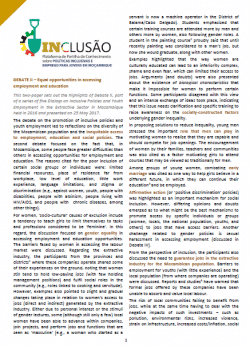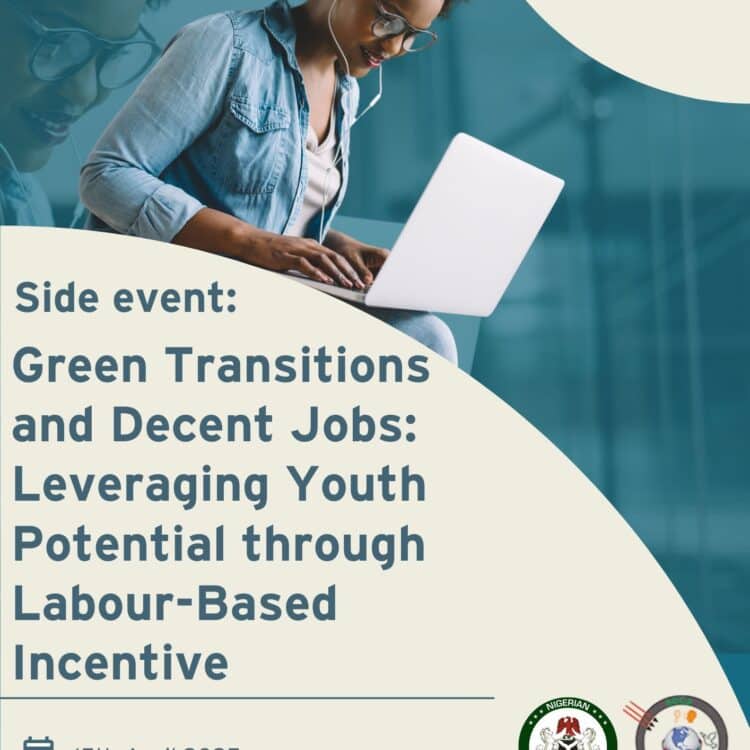
This two-pager provides highlights of a debate on equal opportunities in accessing employment and education, part of a series of five dialogs on inclusive policies and youth employment in the extractive sector in Mozambique held through 2016 and presented in a national workshop on 25 May 2017.
The key highlights
- Inequitable access to employment, education and social policies in Mozambique results from limited financial resources, residing far from the workplace place, low level of education, little work experience, language limitations and stigma or discrimination.
- Women still tend to hold low-paying jobs, tend to fulfil social roles in the community although some have been advanced within companies and perform jobs and functions that are seen as masculine.
Proposed solutions
- Training to raise awareness on the socially-constructed factors underlying gender inequality.
- Men have an important role to play in motivating women to realize that they are capable and should compete for job openings.
- Combating early marriage among girls to help them believe in a different future, in which they can continue their education and be employed.
- Affirmative action be used as a strategy for social inclusion.
- Address barriers to employment for those with little experience in the extractive industry firms
- There is a need for training to prepare the national and local workforce to compete on an equal basis with the job opportunities.
- Companies should have fair and transparent criteria for hiring local staff and that the government of Mozambique should enforce such criteria and processes, including by ensuring the equal treatment of workers within extractive industry companies.
- Encourage coexistence involving mutual respect and adaptation to habits, attitudes, and ways of thinking, acting and working between extractive firms and local population.
- Enhance digital inclusion of rural populations, youth and people with limited access to the Internet, television, newspaper and radio.




